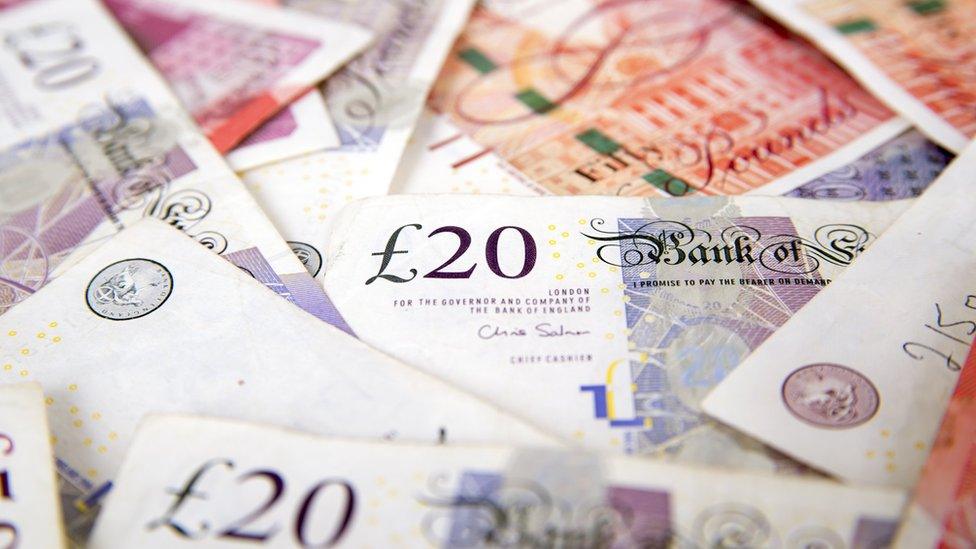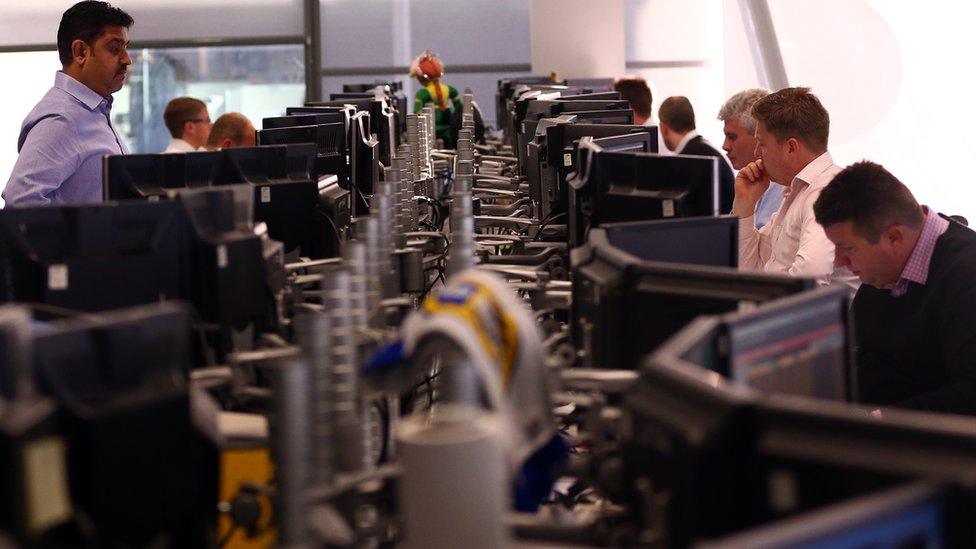Government borrowing worse than forecast in November
- Published

Government borrowing figures were worse than expected in November, casting doubts over whether the chancellor will meet forecasts for this financial year.
Borrowing for the month was £14.2bn, up by £1.3bn compared with November 2014.
The Office for National Statistics, external said the figure for November last year was boosted by a one-off gain of £1.1bn in fines for foreign exchange rigging.
Total borrowing for the financial year to date is now £66.9bn, down £6.6bn from the same point last year.
The independent Office of Budget Responsibility (OBR) estimates that borrowing for the whole of the financial year 2015-16 will be £68.9bn - excluding support for public sector banks, and also excluding new changes to the treatment of housing associations.
That is below last year's £90.1bn, which would mean Chancellor George Osborne would have achieved his aim of cutting government borrowing.
Mr Osborne's overall plan is to eliminate the annual gap between government spending and revenue by the end of this decade.
The ONS said total public sector debt had risen to £1,536.4bn, equivalent to 80.5% of the UK's annual economic output.
'No festive cheer'
January is typically a good month for government finances as a large number of tax bills are paid then.
But both October and November's monthly borrowing figures have been higher than expected, leading some economists to doubt that the chancellor will be able to meet the OBR's forecast for the current financial year.
"There was no festive cheer for the chancellor in November's UK public finances figures," said Paul Hollingsworth, UK economist at Capital Economics,
"Indeed, it now looks almost impossible for Mr Osborne to meet the OBR's forecast for the fiscal year as a whole.
"If we assume that the trend seen so far this year continues, then borrowing for 2015-16 as a whole would come in at around £81bn."
Robert Chote, chairman of the OBR, told the BBC that he was "not particularly" surprised by the latest borrowing figures.
"There are a number of particular reasons why the borrowing numbers should look relatively bad this November relative to the previous one.
"On the spending side, it's got something to do with the timing of which particular months the government's contributions to the European Union fall, and also the government's contributions to the bit of the World Bank that lends to the poorest countries."
However, he added that policy measures announced in the past are likely to boost self-assessment income tax receipts in January and February, and government spending cuts announced in June could also help the deficit to fall faster in the remainder of the year.
'Plan is working'
A Treasury spokesperson said borrowing was higher because of a number of one-off factors that were likely to unwind next month.
"Beyond these factors, we can see that our plan is working, with government receipts growing - stronger income tax, VAT and on-shore corporation tax - showing the benefits of a growing economy with record employment levels," the Treasury said.
However, Howard Archer, chief economist at IHS Global Insight, said: "The chancellor now faces a massive task to meet his fiscal targets for 2015-16 and it is frankly hard to see how he can make it - even allowing for the fact that public finances can be volatile from month to month."
David Kern, the chief economist at the British Chambers of Commerce, said: "The public finances are likely to be better this year than in the previous financial year, but... the underlying message remains that our budget deficit is still too high and greater efforts are needed, through reducing current public spending and generating sufficient tax receipts."
- Published17 December 2015

- Published16 December 2015

- Published15 December 2015
